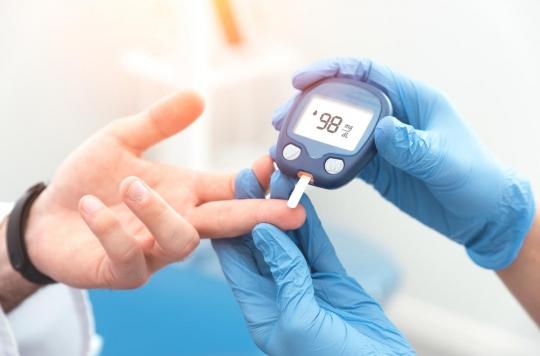The risk of death from an infectious cause is multiplied by eight in the event of diabetes, hence the concerns of the Francophone Diabetes Society regarding the insufficient vaccination coverage of these patients.

THE ESSENTIAL
- 6% of hospitalizations and 12% of deaths from infectious causes are linked to diabetes.
- The SFD strongly urges people with diabetes to get vaccinated, especially against the flu and respiratory infections.
Faced with the Coronavirus epidemic, the Société Francophone du Diabète strongly urges people suffering from diabetes to get vaccinated, especially against the flu and respiratory infections.
“While the complications linked to infections have a major impact on the life expectancy and quality of life of people living with diabetes, the vaccination that could prevent these infections is insufficiently adopted. A problematic situation that resonates particularly in the context current epidemic of Covid-19”, say health professionals.
Insufficient vaccination coverage
The authors of a 2018 study published in the journal Diabetes Care estimated that 6% of hospitalizations and 12% of deaths from infectious causes were related to diabetes. Taking another point of view: the risk of death from an infectious cause is multiplied by 8 in the event of diabetes. Whether they are pulmonary, digestive or even urogenital infections, diabetes significantly increases the risk of developing them in a serious form.
However, some of these infections could be avoided by vaccination, in particular against the flu or even certain pneumococcal respiratory infections. The Francophone Society of Diabetes reminds “insufficient vaccination coverage against influenza in diabetic subjects under 65 years of age, whereas it is recommended for all diabetics by the WHO, HAS in France and international learned societies”.
Pneumococcal vaccination
This delay in vaccine strategies is even more alarming in the case of respiratory infections (superinfection by pneumococci is also frequent after a viral infection such as influenza, editor’s note). In young diabetics, the risk of invasive pneumococcal respiratory infection is multiplied by 3.8, an increase which rises to 4.6 for 16-64 year olds. “Pneumococcal vaccination is recommended for all people with diabetes by the ADA (American Diabetes Association) at the international level and according to the French vaccination schedule for diabetics not balanced by the simple diet”. insists the Francophone Society of Diabetes.
How can this increased risk of infection in people with diabetes be explained? First of all, alterations in the immune system are present in patients and favor this infection. In addition, the development of certain germs would be facilitated by an environment rich in glucose. Finally, complications of diabetes, such as alterations in microcirculation, are implicated. Impaired blood circulation could delay the response to infection and the healing of wounds.
Impact on quality of life and life expectancy
“It is essential to integrate the prevention of infectious diseases as a major component of the healthcare pathway for people with diabetes and to strengthen the vaccination strategy to reduce hospitalizations and deaths due to infectious diseases. These infections have consequences on the quality of life and life expectancy, concludes Pr Ariane Sultan, endocrinologist at the Montpellier University Hospital.
More generally, the Academy of Medicine has called, in a press release dated May 13of “make influenza vaccination compulsory for all caregivers and social workers in contact with vulnerable people, in particular in nursing homes, institutions, hospitals and nurseries.” For the rest of the population, the idea of more vaccination than usual is also mentioned. It is notably shared by the High Authority for Health (HAS) which, according to The worldlaunch a campaign in mid-October to encourage, more than usual, the French to get vaccinated against the flu.

















